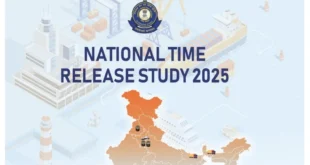The government’s revised guidelines for conducting exams for persons with disabilities are unfair and regressive
In an 1850 report, Samuel Gridley Howe, popularly considered the ‘father of the American blind’, emphatically wrote: “The blind as a class, are inferior to other persons in mental power and ability.” It is dismaying to note that, 168 years later, far too many people continue to harbour this unfounded and deeply offensive belief. This ‘presumption of incompetence’ would be deeply troubling, but nonetheless tolerable, if its scope were confined to the way society interacts with the disabled. However, that it has emerged as the unstated premise informing the formulation of policies is a far more worrying development. I speak here of the recently released ‘revised guidelines’ by the Union Ministry of Social Justice and Empowerment for conducting written examinations for persons with disabilities, which significantly whittle down the 2013 guidelines that played a transformative role in empowering such students.
Claims of cheating
It is difficult to fathom why the decision to revise the 2013 guidelines was taken. The revised guidelines articulate two reasons. First, they state that the revision was triggered by representations made by the Union Public Service Commission (UPSC) and others. It is believed that the UPSC’s discomfort with the 2013 guidelines flowed from their misuse by some students who coached their scribes before the exam. If an able-bodied student engages in cheating, the normal consequence is his disqualification. However, what the UPSC did was to demand that the guidelines be changed. This is much like demanding that when students cheat, say by keeping chits in their clothes, the very dress code be changed. Second, curiously, the revised guidelines state: “The Act [Rights of Persons with Disabilities Act, 2016] provides for reservation in Government jobs for persons with benchmark disabilities as defined under section 2 (r) of the said Act.” If the connection between reservation in government jobs for the disabled and guidelines for exams appears strange, that is because it is. Therefore, the very decision to fix what ain’t broken appears profoundly misguided. At a substantive level, the revised guidelines make three problematic alterations. First, in case the disabled candidate is allowed to bring his own scribe, the qualification of the scribe should be ‘one step below’ the qualification of the candidate. Whether the phrase ‘one step below’ here refers to one year below in the same degree or one degree below is unclear. The revised guidelines also do not deal with a situation in which a disabled candidate and the scribe are from different streams. The 2013 guidelines had stated that vague criteria like educational qualification should not be fixed. Second, for certain classes of candidates with benchmark disabilities, the revised guidelines have imposed a requirement that a certificate be furnished from a designated official, indicating that the candidate has a physical limitation and needs a scribe. This essentially renders the impact of a disability certificate wholly nugatory.
Third, the new guidelines have transformed claims that were hitherto recognised as ‘legal entitlements’ to ‘liberties’ whose exercise is contingent upon the goodness of the exam-conducting bodies. For instance, the candidate is to be given an opportunity to choose his preferred mode of giving the examination and provided soft copy material for open book exams only to the extent possible. That the phrase ‘as far as possible’ has been inserted principally to provide authorities an escape hatch from making reasonable accommodations doesn’t require elaboration. While it is true that making some accommodations would not be practicable, the contingency could have been dealt with by making it mandatory for the examining body to record the reasons in writing. The fact that some candidates with disabilities have coached their scribes in the past is indisputable. While this malpractice is sometimes attributable to nothing more than a candidate’s indolence, it is also true that some see this as a means to level the playing field in a system that has failed to ensure their meaningful integration. Such barriers can only be addressed through ceaseless advocacy and strategic litigation.
Finally, the dilution of the 2013 guidelines also appears legally suspect, given that the Supreme Court recently endorsed the principle of non-retrogression of rights, as per which there is no place for retreat in a progressive society. Therefore, one hopes that the courts will step in to ensure that this new stumbling block is swiftly removed.
The writer is a lawyer who happens to be blind since birth
Check Also
Biofuels and the Food vs. Feed Dilemma
GS3 – Environment Context India’s growing emphasis on biofuels is raising alarm over the diversion …
 Chinmaya IAS Academy – Current Affairs Chinmaya IAS Academy – Current Affairs
Chinmaya IAS Academy – Current Affairs Chinmaya IAS Academy – Current Affairs


